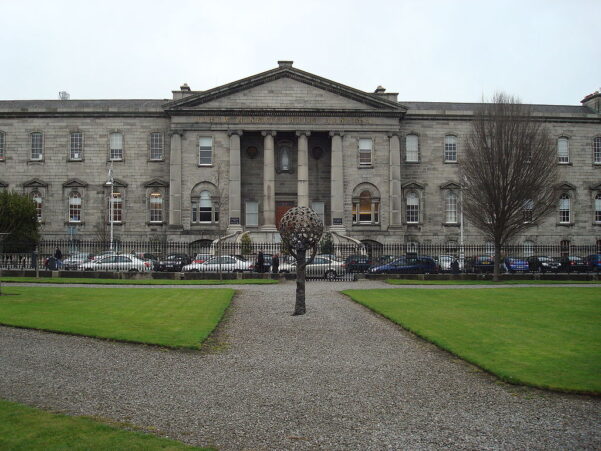In the debate about the National Maternity Hospital, Catholic health care, and the role of the nuns in particular, are being constantly demonised. We are led to believe that secular healthcare is far better, something that does not hold up to scrutiny.
Among those attacking Catholic healthcare and the religious sisters has been Sinn Fein leader, Mary Lou McDonald who said recently: “Government after Government in the history of this State colluded with religious dogma to deny us, as women, what we were entitled to by way of healthcare“.
Deputy Brid Smith wants religious iconography removed from the two St Vincent’s hospitals at Elm Park, where the new NMH will be located and a “move away from the historical legacy of the religious order’s involvement”, as though the legacy is entirely bad.
Yes, there is a dark side to that legacy, but also a strong positive side that is now constantly overlooked.
Religious sisters were the founders of modern nursing, for instance.
Generations of women religious who dedicated themselves to healthcare, education and caring for the poor have provided an extraordinary contribution to society, a contribution that has no equal. Their dedication was made more effective precisely by the fact that they had taken vows which meant they would not have a family of their own, or pursue material comfort. Their vow of obedience meant total dedication to the cause of their congregation.
In Ireland, we have some shining examples of female leadership in the likes of Mary Aikenhead, Catherine McAuley or Mary Martin, respectively the founders of the Religious Sisters of Charity, the Mercy Sisters and the Medical Missionaries of Mary. Their legacy worldwide is acknowledged but not in their homeland, where religious sisters are often openly despised, a socially acceptable form of misogyny.
It is not an exaggeration the claim that the Catholic Church is the largest single health care provider in the world. Public health systems are often built on religious foundations.
According to the most recent statistics (2021), the Catholic Church runs 5,245 hospitals, mostly in Africa and America, 14,863 healthcare clinics, 532 leprosaria, 15,429 nursing home for the elderly, chronically ill and disabled.
Catholic medical ethics are often presented as somehow regressive, an impediment to proper care, but it is much more in line with the idea of medicine expressed in the Hippocratic Oath than the “secular alternative”. Doctors in the Hippocratic traditions do not kill terminally ill patients or carry out abortions.
The relocated National Maternity Hospital will offer procedures such as elective abortions, elective sterilisation, and so called “gender affirming care”, which means removing wombs from healthy women who self-identify as men. But none of those procedures are proper medicine as they do not prevent or cure a disease.
In the US, a New York Times opinion piece recently accused Catholic hospitals of endangering the lives of expectant women because they follow ethical directives prohibiting abortion, except where there is a clear danger to life.
A response by Sister Mary Haddad, president of the Catholic Health Association of America, rebutted these accusations pointing out that Catholic hospitals in the US “deliver about 500,000 babies annually and are accredited and held to the exact same standards as non-Catholic hospitals.”
We often hear of hard cases in Catholic hospitals, but we never hear of the hard cases caused by the “secular alternative” model of medicine, for instance, babies born alive after an abortion and let die.
Are they not patients who need care? A care that is denied only because they are not welcome.
Moreover, how many healthy babies are aborted because of wrong or uncertain diagnosis of foetal abnormality? Mistakes are constantly being made in the “secular alternative model”, without considering matter of principles such as not killing.
This is leaving aside the fact that secular hospitals are willing to abort the healthy babies of healthy women and increasingly to perform assisted suicide. Catholic healthcare, Hippocratic healthcare, is far superior to this.
















